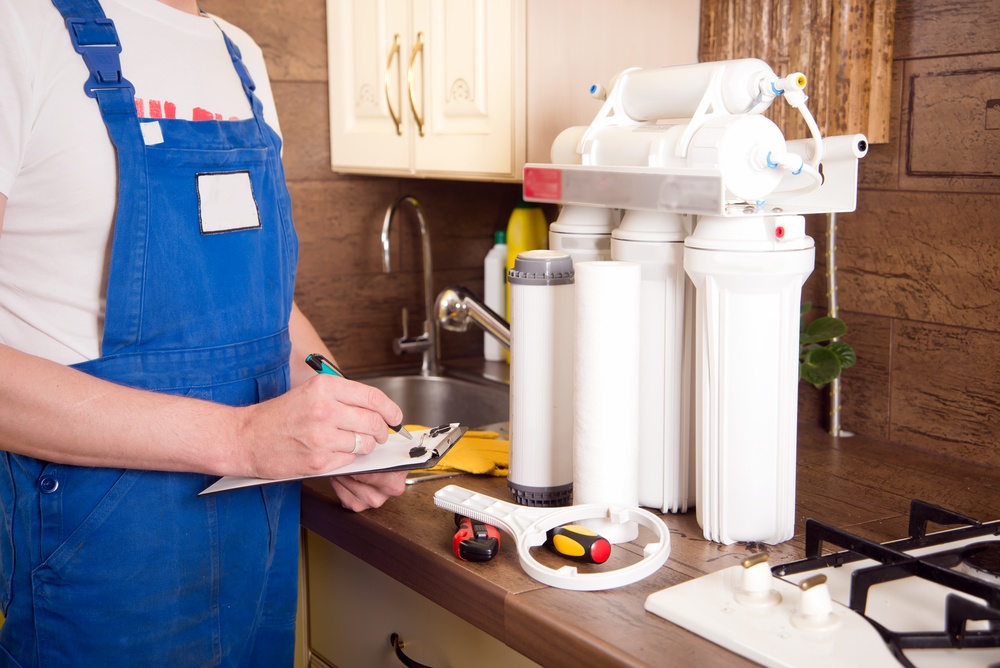Significant to human health, water treatment is the process of improving water quality by removing or reducing the concentration of pollutants and undesirable water contaminants. When considering the right water treatment system for your home, you must first consider what harmful water pollutants are affecting your water supply so that you can choose a system that will benefit you best.
The Benefits of Treated Water
The process of water treatment can aid in the purification and decontamination of drinking water, crop irrigation, and industrial water supplies. It may also assist in river maintenance and water recovery for a safe return to the environment. Water treatment systems also provide many in-home benefits, including:
- Purer drinking, cleaning, and bathing water
- Healthier skin and softer hair
- Brighter, cleaner laundry
- Sparkling plates and glassware
- Reduced amount of mineral and iron stains on cookware and appliances
- Reduced amount of soap scrub buildup in tubs and sinks
Popular Types of Water Treatment Systems
Water treatment system sizes vary and must be installed in accordance with the requirements of the house. The following water treatment systems help to eliminate a range of common water problems such as hardness, tannin, hydrogen sulfide, iron, and sulfur contamination.
- Carbon Filtration Systems – Carbon filtration is a purification technology known for improving the taste, smell, and transparency of your drinking water while removing organic pollutants, such as tri-halogen-o-methane, trichloroethylene, and paradichlorobenzene. Carbon filtration is most often used to absorb chlorine and chloramines in urban waters; however, it does not remove all dissolved mineral salts from water.
- Water Softener Systems – Water softeners work on the principle of exchange, where the stiffness is high, but iron and manganese ions are reduced to a small level at concentrations exchanged with sodium or potassium ions. Replacement is carried out in a tank with small resin balls made of special plastics. Repeatedly, the sodium or potassium ions are completely exchanged, and the device must be rinsed or regenerated periodically. To do this, sodium chloride or potassium chloride is dissolved to form a saline solution which recharges the resin.
- Reverse Osmosis (RO) System – Reverse osmosis is the reversal of the natural flow of osmosis. When pressure is applied to an aqueous solution with a higher concentration, the fluid flow reverses. Under these conditions, the membrane still releases contaminants but allows fresh and clean water to flow. Pure water is then kept in a tank and the pollutants are washed. This process is commonly used to remove sodium from water but also removes harmful elements such as arsenic, uranium, nitrates, lead, and many other potential pollutants from drinking water.
Professional Water Treatment Services
At Domer’s, we can install a quality water purification system to process out contaminants and provide your home with a pristine water supply. With more than 90 years of experience, Domer’s has set the standard for efficient and reliable water treatment services in the Okeechobee, Florida area. For more information about our high-quality services, give us a call today at 863-763-3417.
Domer's Inc.
204 SE 10th AvenueOkeechobee, FL 34974
Get Customized Directions Here
Tel: (863) 763-3417
Fax: (863) 763-7339
Email: [email protected]
Business Hours:
M-F 7:30am - 5:00pm
Closed Weekends
Emergency Service
Available 24/7
 Follow Us on Facebook
Follow Us on Facebook


